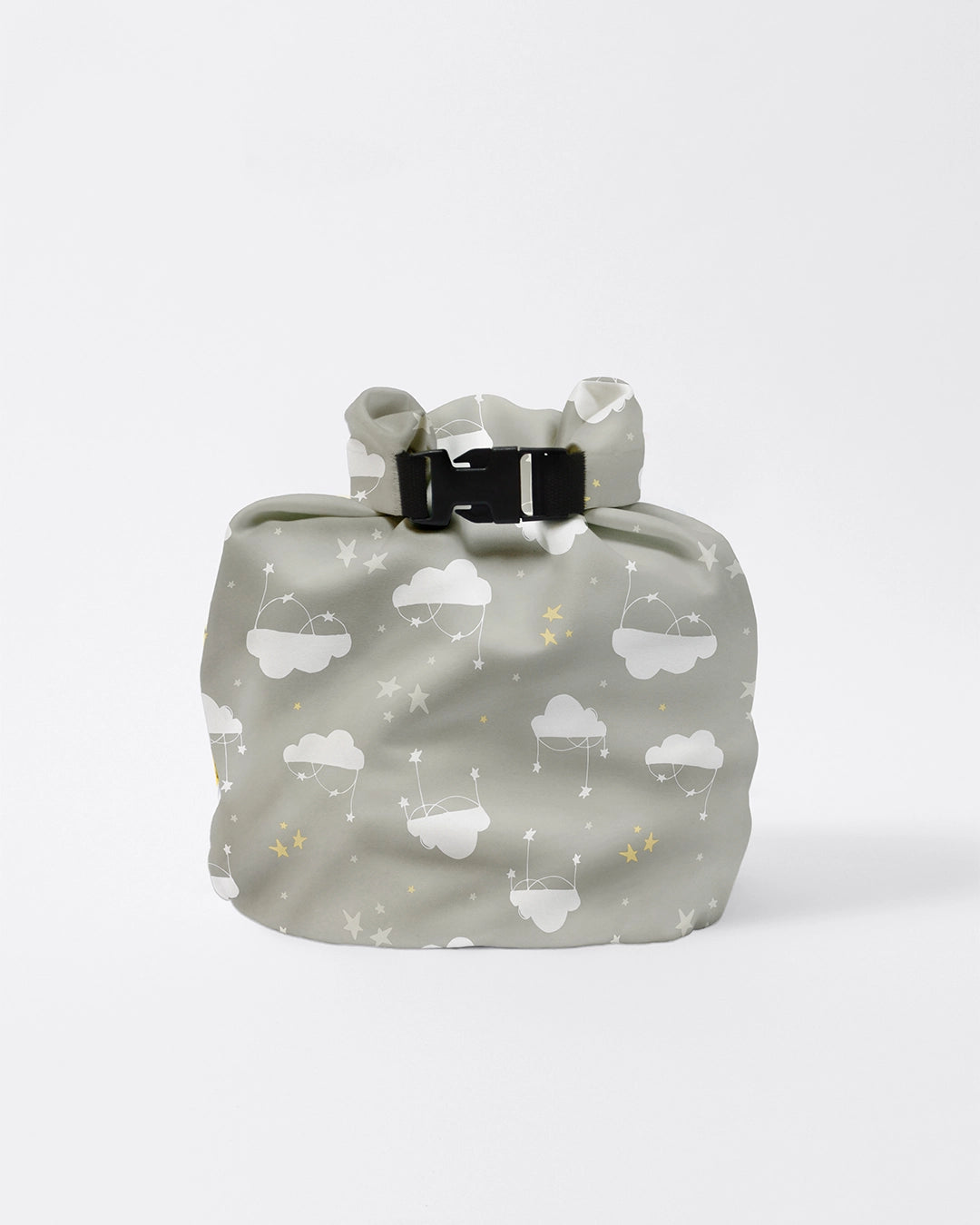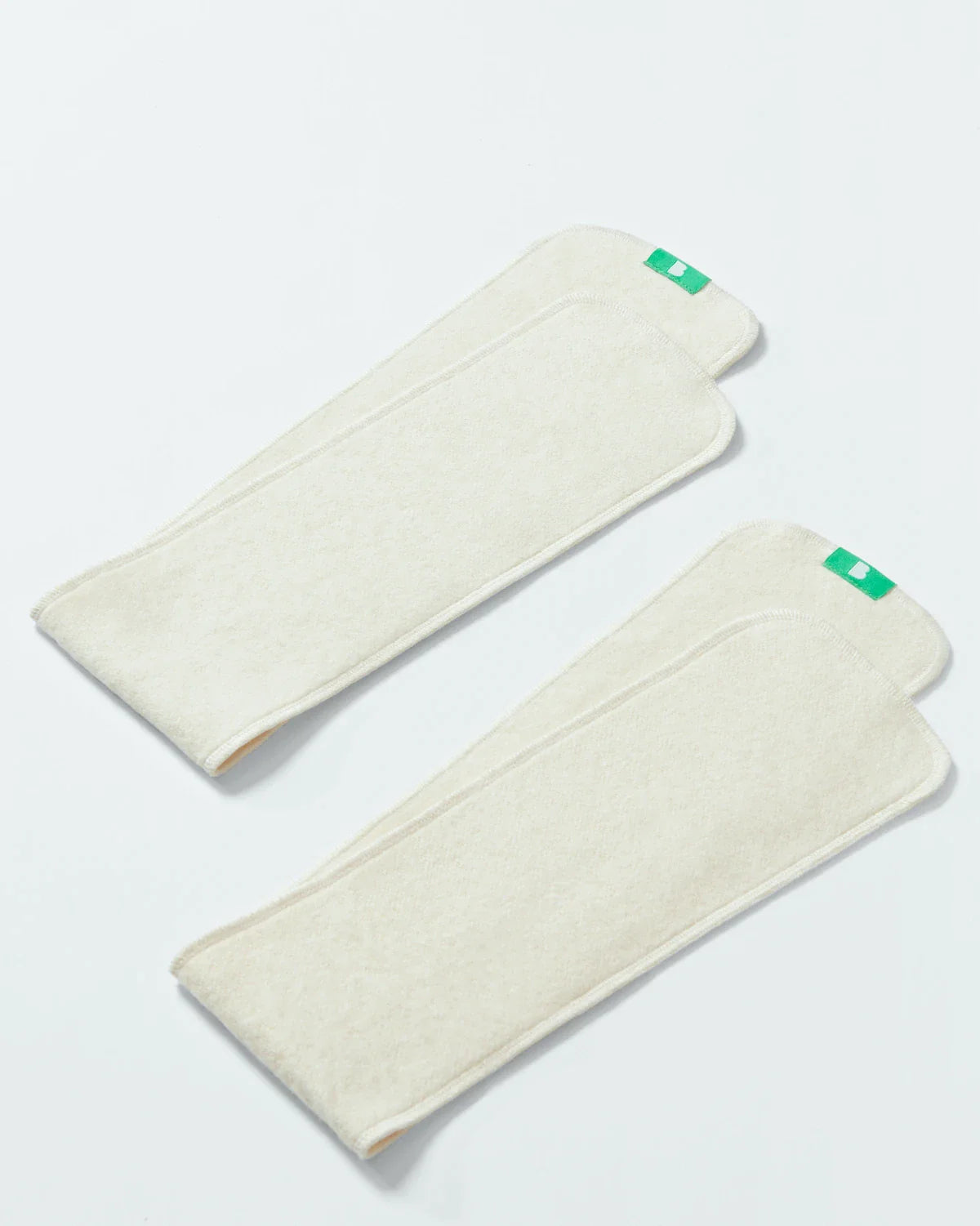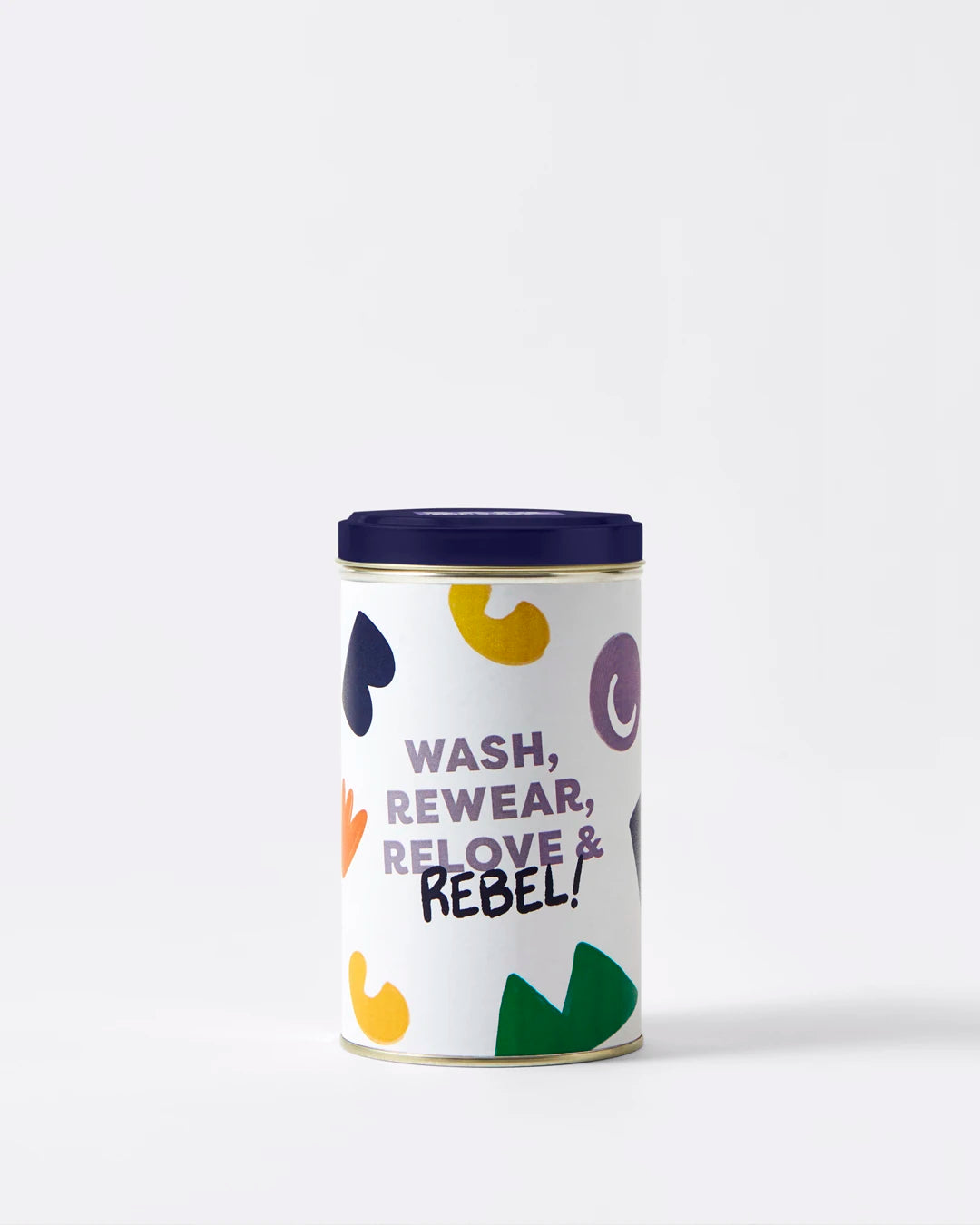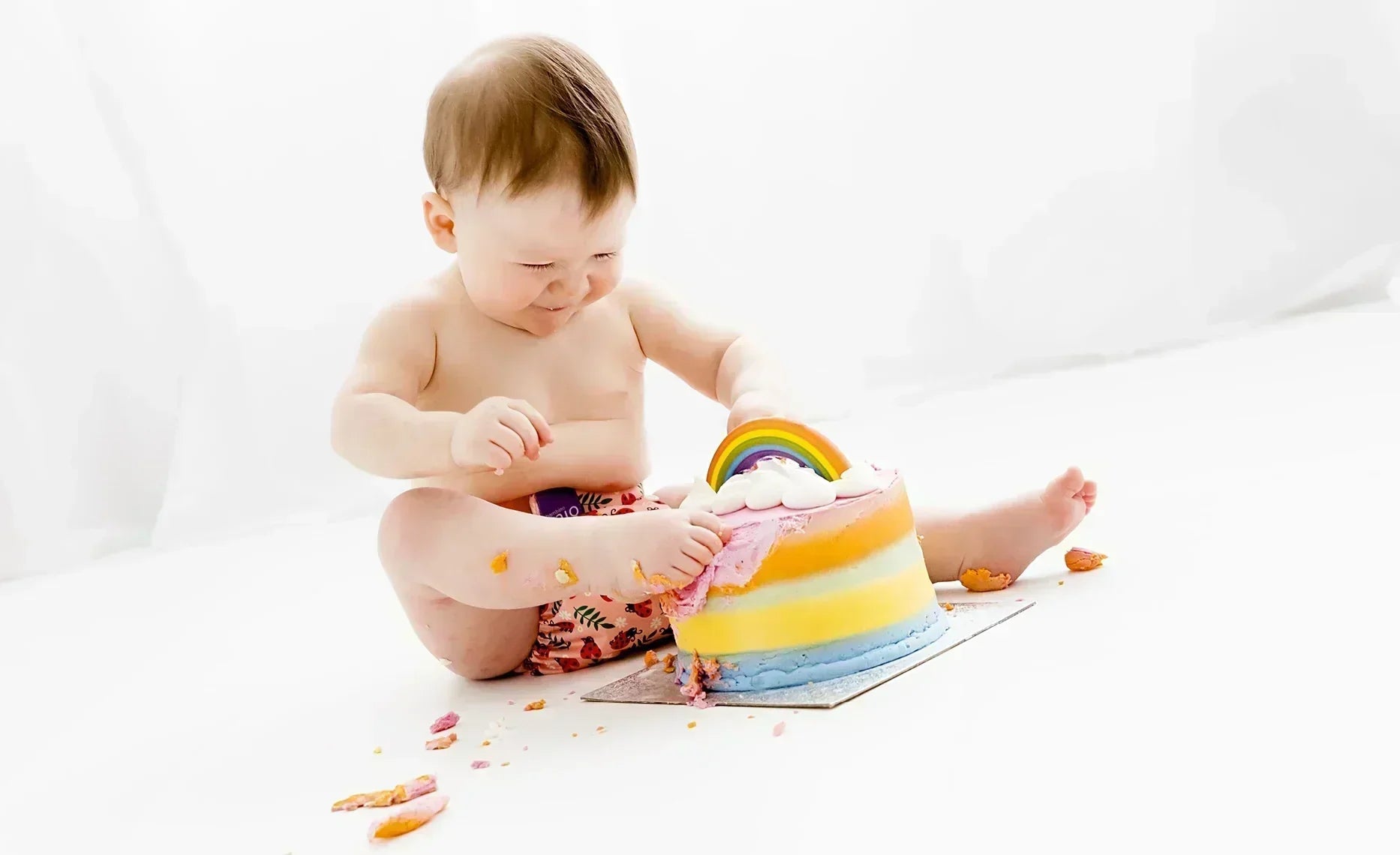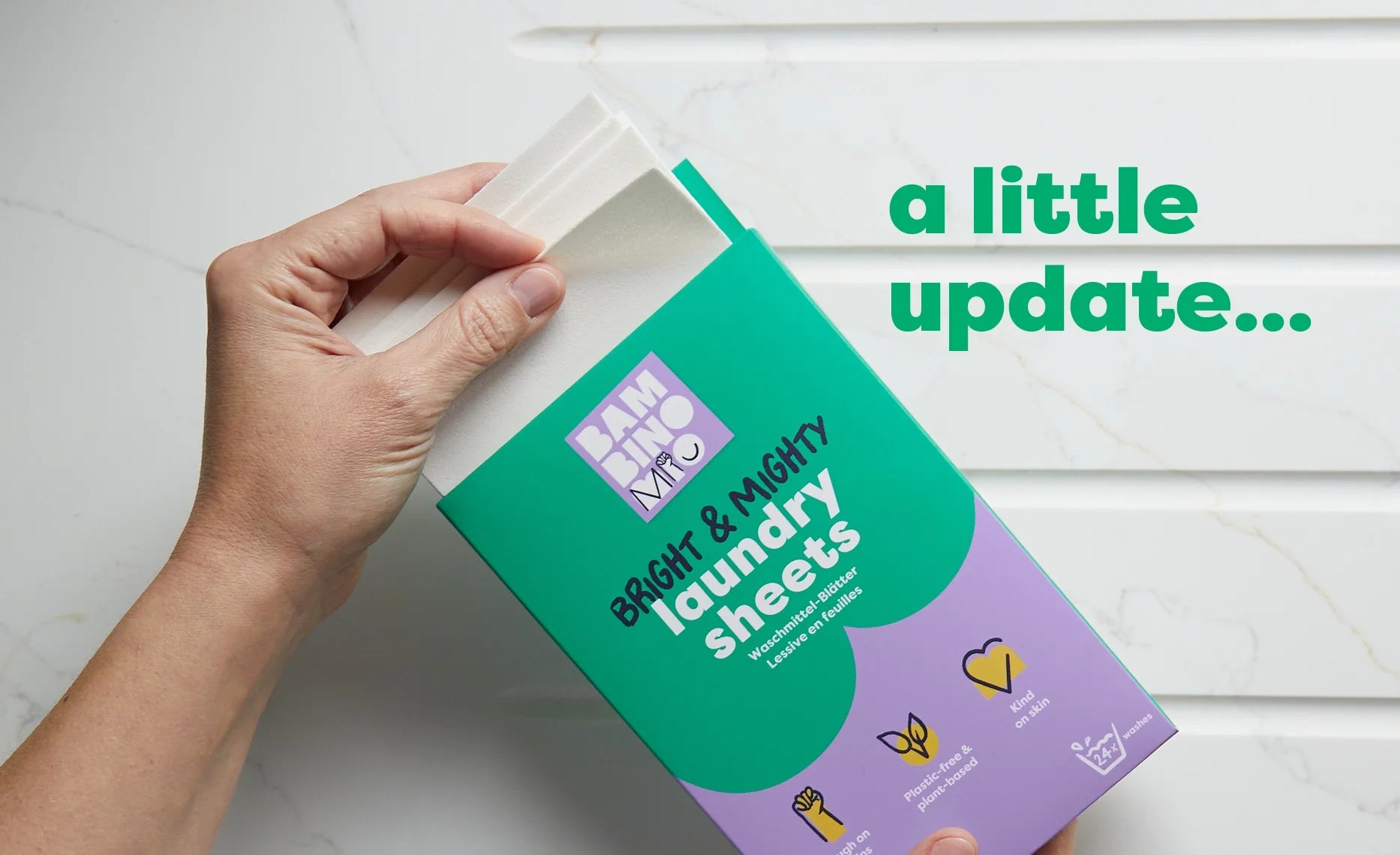Week 22 of Pregnancy | How Big is Your Baby at 22 Weeks?
Share Options
- Bambino Mio
- 28 / 06 / 2023
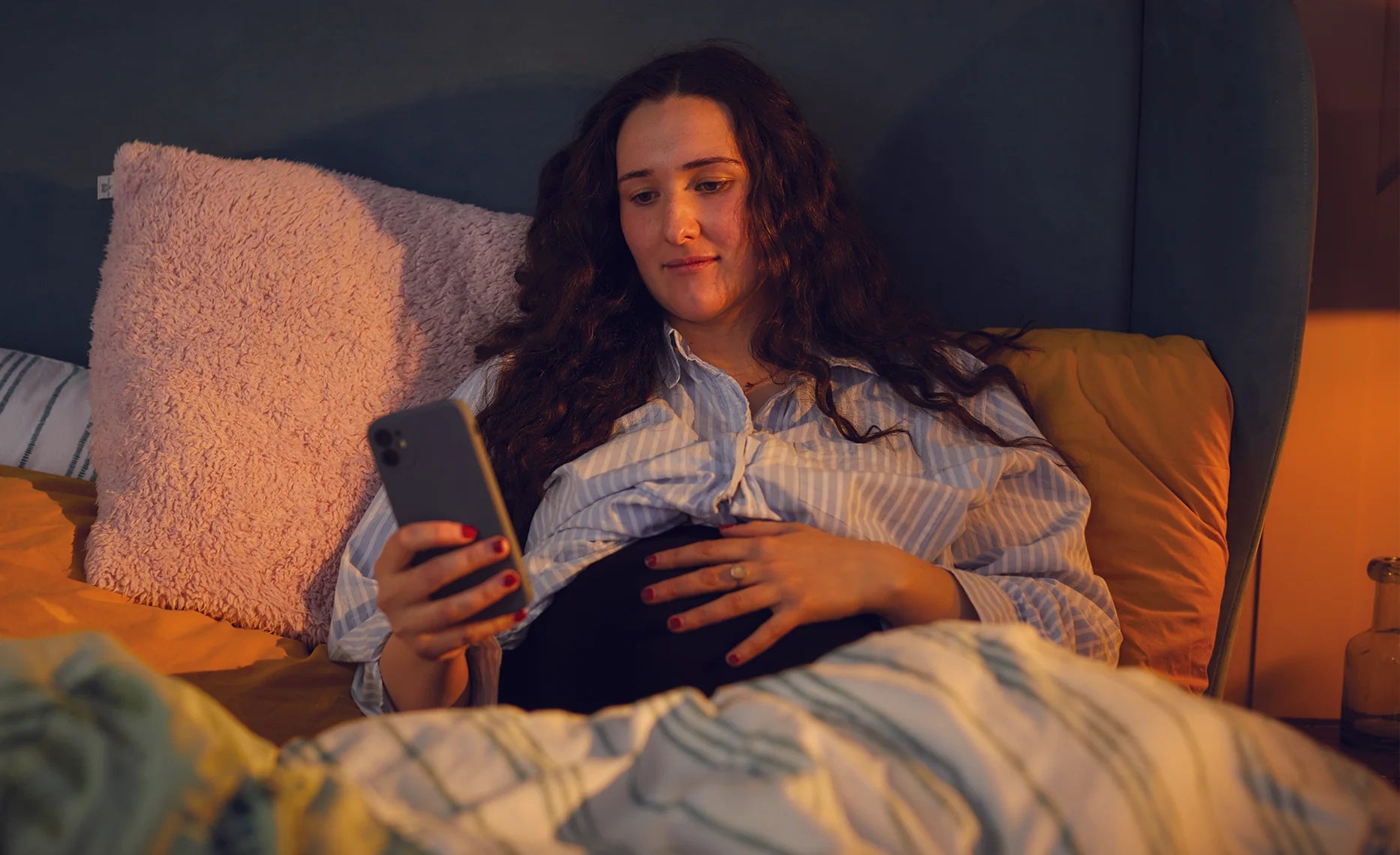
Inside this Article:
Pregnancy is a time of huge change for you, your body and your life. Our guide will help you through this amazing time, letting you know what to expect at each stage and, most excitingly, what your baby is up to each week.
Your baby is the size of a large papaya
The exotic fruits just keep coming along! Yes, by 22 weeks, your baby is the size of a large papaya, which in other words is around 27.5cm (10.75in) from crown to heel and they weigh about 475g (16.75oz).
This is quite a size when you think about it and by now you might be noticing a bit of pressure from your bump and the baby. This can lead to one of the more annoying pregnancy symptoms - varicose veins - we’ll deal with those very shortly.
Baby’s working out how to use both hands!
Not just both hands, but both hands independently! (1) They can touch their hands together, cross them over and they’re probably spending more time grasping at and holding their umbilical cord.
In other news, your baby’s bones are continuing to grow and harden, so it’s still important to take in enough calcium and vitamin D (2).
How you’re feeling at 22 weeks
In short, you might be feeling hot, sweaty and a bit swollen! (3) All the extra fluid your body accumulates during pregnancy can make your lower legs and feet swell a bit and this is a good excuse for a lie down whenever possible! Taking a cool bath or shower also helps you to feel less sweaty and overheated, especially if you’re pregnant over the summer.
Braxton Hicks contractions
You might not notice it at first, but your womb starts to practise contractions from around 20 weeks. These Braxton Hicks contractions (4) start off subtly but become stronger and more frequent as your pregnancy goes on.
Braxton Hicks contractions are a tightening of the muscles in the uterus. When the muscles get tight, your belly may feel hard. These contractions are normal. They are typically mild and irregular, but they can feel strong.
While they are a tightening of your uterine muscles and your belly might feel hard, these are just practice contractions - they aren’t actual labour. Braxton Hicks contractions tend to be irregular and short lived. Here’s how to tell the difference between practice contractions and the real thing:
- Braxton Hicks contractions are irregular - you may get a few in a few minutes, of varying strengths and durations, or one every now and then
- Real labour contractions get progressively stronger and longer, with regular intervals between them
- Braxton Hicks contractions are just tightenings, they may feel uncomfortable, but there’s no other labour signs such as loss of blood or other fluids from the vagina
- Braxton Hicks contractions often peter out if you eat or drink something, or do some gentle exercise
Staying healthy at 22 weeks
From 20 weeks of pregnancy your baby needs more calcium for their bones and milk teeth, which means you need more calcium! Many women take a supplement, but you can make sure you’re eating one or two portions of oily fish per week, as well as leafy green vegetables (5) and dairy products (or alternatives).
Even ice cream will give you a calcium boost, so tuck in!
About those varicose veins…
Around 40% of pregnant women develop varicose veins (6) to some degree and while they usually resolve a few months after birth, they can itch and ache, adding to the existing “joys” of pregnancy. They’re rarely anything to worry about
You can help to reduce and relieve them by staying mobile and elevating your feet as much as possible. You should still exercise, but try not to stand still as this lets the blood pool in your lower legs and feet.
Compression socks can also help to relieve any discomfort as they push the blood back up from your lower legs.
What you need to think about at 22 weeks
You might already be thinking about antenatal classes, so why not think about infant first aid classes as well? Many parents-to-be find learning infant first aid gives them a sense of preparedness, even if they don’t need to use the skills they’ve learned.
As you’re over the halfway mark in your pregnancy, it’s time to plan the nursery, even if your baby will be sleeping in your bedroom for the first year.
It might also be time to retire your heels for a while, until your centre of gravity returns to pre-pregnancy settings.
Some gentle exercises (7) focusing on your abdominal muscles and lower back can also help to prevent back pain - and don’t forget your pelvic floor!
Citations and References
(1) National Institutes of Health (NIH). National Library of Medicine. ’Fetal Origin of Sensorimotor Behavior.’ www.ncbi.nlm.nih.gov/pmc/articles/PMC5974044
(2) National Health Service (NHS). ‘Keeping Well in Pregnancy. Vitamins, Supplements and Nutrition in Pregnancy.’ 2020. Web. www.nhs.uk/pregnancy/keeping-well/vitamins-supplements-and-nutrition
(3) National Health Service (NHS). ‘Common Symptoms in Pregnancy. Swollen Ankles, Feet and Fingers in Pregnancy.’ 2021. Web. www.nhs.uk/pregnancy/related-conditions/common-symptoms/swollen-ankles-feet-and-fingers
(4) National Institutes of Health (NIH). National Library of Medicine. ‘Braxton Hicks Contractions.’ 2022. Web. www.ncbi.nlm.nih.gov/books/NBK470546
(5) National Health Service (NHS). ‘Keeping Well in Pregnancy. Vitamins, Supplements and Nutrition in Pregnancy.’ 2020. Web. www.nhs.uk/pregnancy/keeping-well/vitamins-supplements-and-nutrition
(6) National Health Service (NHS). ‘A to Z of Health. Varicose Veins.’ 2020. Web. www.nhs.uk/conditions/varicose-veins
(7) National Health Service (NHS). ‘Health and Fitness in Pregnancy.’ Web. www.tims.nhs.uk/self-care/health-fitness-in-pregnancy
Pregnancy by Week, What to Expect






















